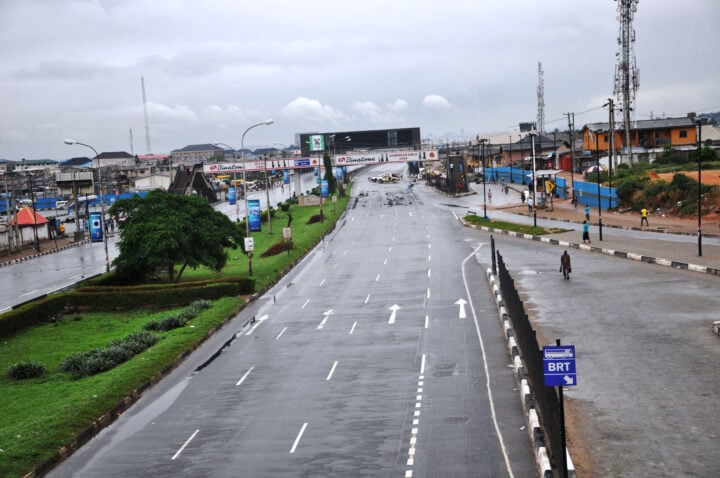Police officers | File photo
The Ogun state police command says it has dismantled a notorious syndicate of Cameroonian nationals involved in kidnapping victims on the pretext of visa processing.
The anti-kidnapping unit arrested two suspects during a raid on their hideout in Mowe, along the Lagos-Ibadan expressway, with the gang leader at large.
Omolola Odutola, the police spokesperson in Ogun, said the operation followed a distress call from a Cameroonian woman, Kengne Maeva, who was lured into Nigeria on September 29, 2025 by a man named Donald.
The police said investigations unravelled that Donald had promised to process a Canadian visa for Maeva but instead held her and her younger sister hostage in a two-bedroom flat in Pakuro, Ogun state.
Advertisement
Odutola said Maeva escaped captivity on November 3 and alerted the police, saying other victims were also being held.
The police subsequently raided the hideout and arrested two suspects, Ndzana Kamga Isidore and Tingue Stephen.
According to the police, the victims’ families in Cameroon had paid a ransom of 3.6 million CFA francs into the fleeing suspect’s bank account.
Advertisement
“Shortly after she arrived at Murtala Mohammed Airport, Lagos, she was received by the supposed ‘agency’ which provided transportation from Lagos to Mowe, Ogun state, where she and her younger sister, aged 23 years, were held hostage,” the statement reads.
“On 3rd November 2025, the complainant escaped from captivity and alerted the police, disclosing that more victims who fell for the same ploy were being held in a two-bedroom flat in the Pakuro area of Ogun State.”
Lanre Ogunlowo, Ogun commissioner of police, said he has ordered heightened surveillance of similar criminal activities across the state.
He said tactical commanders have been instructed to collaborate with community leaders, especially in remote areas, to report suspicious foreign nationals renting properties directly to the police.
Advertisement
The command said it is committed to protecting lives and property, warning that criminal elements will find no refuge in the state.












